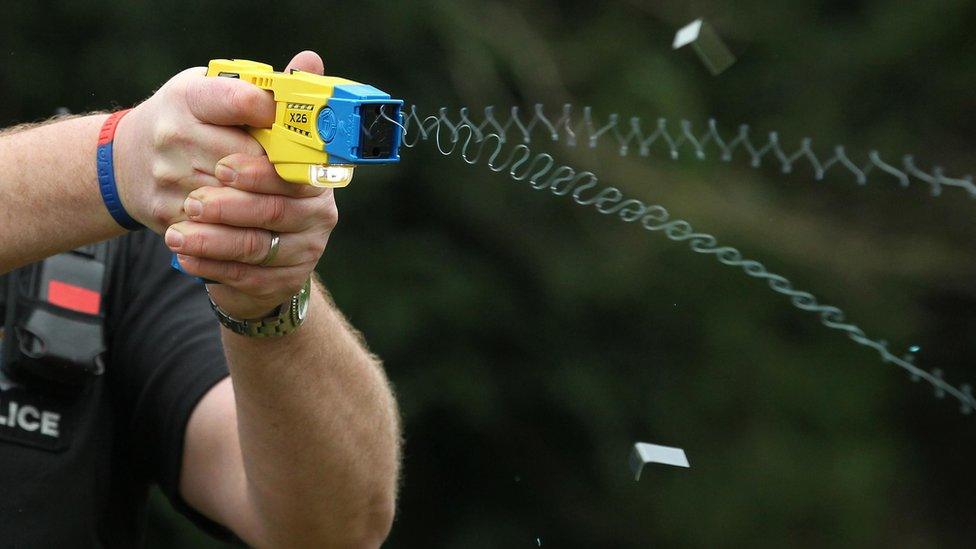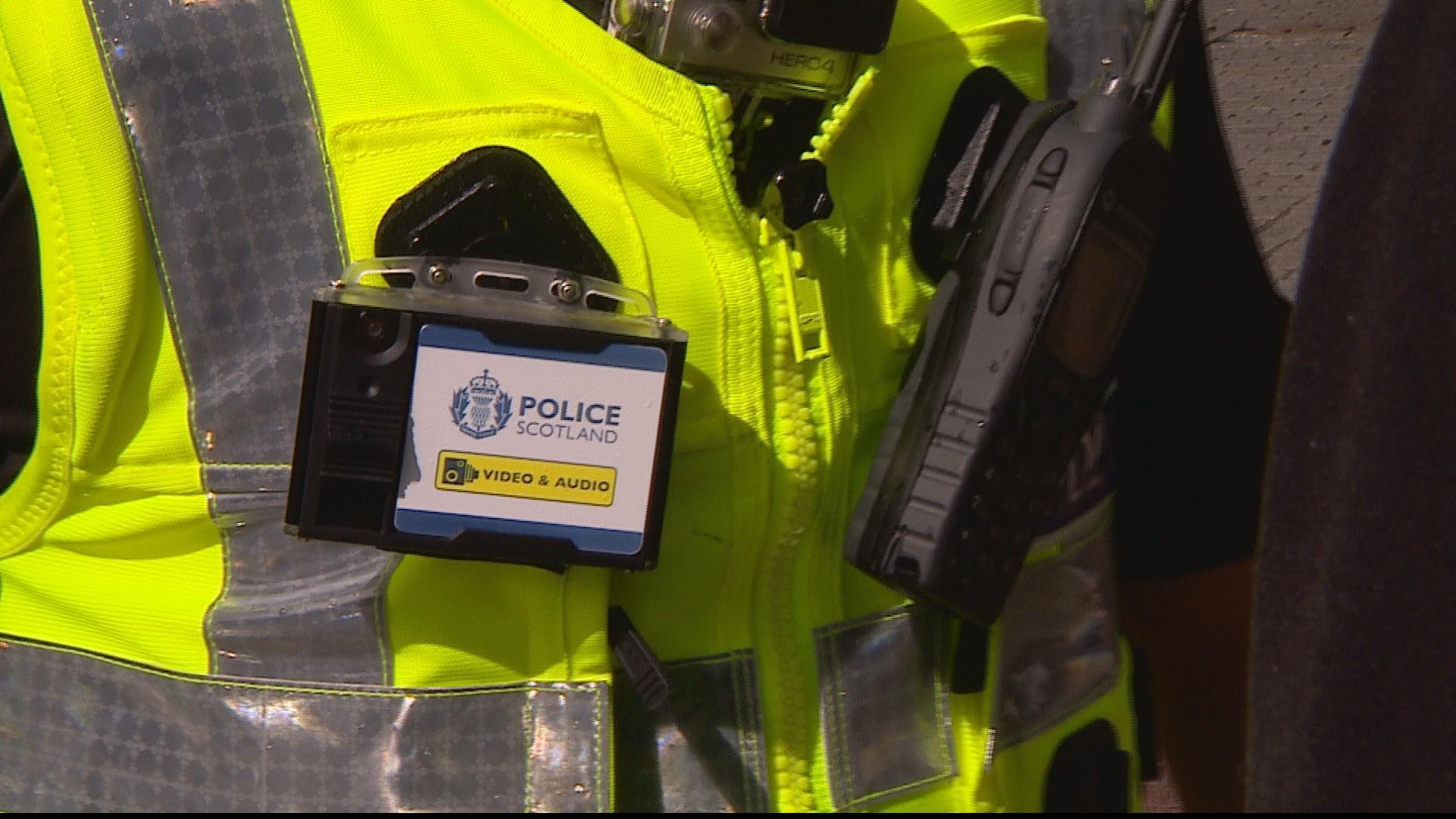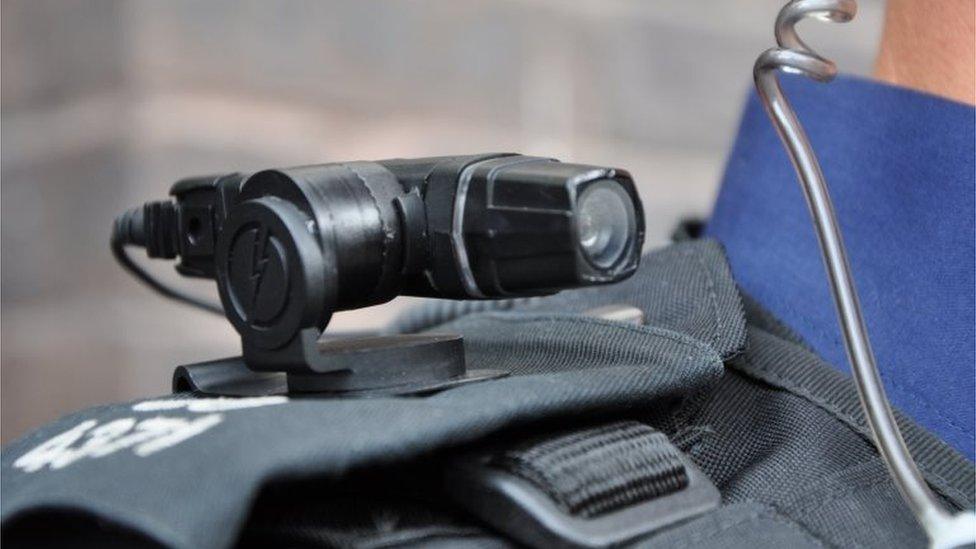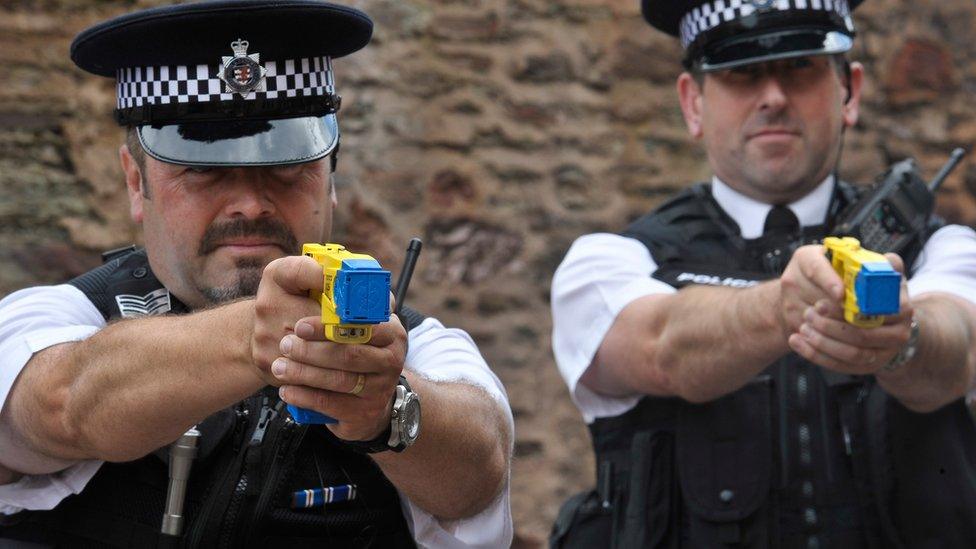Police body cameras 'reduce the need to fire Taser'
- Published
Body cameras are switched on at the scene of an incident, with staff trained to inform suspects they are being filmed
Police officers who wear body cameras have Tasered fewer suspects in West Yorkshire, a senior chief has said as figures show a drop in discharges.
Assistant Chief Constable Andy Battle said people "modify their behaviour" when cameras are switched on, leading to 27% fewer Taser incidents in 2017.
In 2016 West Yorkshire Police introduced body-worn video (BWV), which is used by forces across the UK.
ACC Battle said officers used "less force" but they will still use Tasers.
'Resolve the situation'
West Yorkshire Police recorded 78 incidents where a Taser was discharged in 2016, falling to 57 in 2017 - a 27% drop.
This is despite a 26% increase in incidents where the device has been required in some way, including being drawn and aimed but not fired.
The cameras are clipped to an officer's uniform and switched on during patrols or at the scene of an incident, with staff trained to inform suspects they are being filmed.
West Yorkshire Police has 2,300 of the 63,000 cameras used by police officers across the UK.

Every police force in the UK now has access to body-worn video, with the Metropolitan Police using 21,000 cameras
ACC Battle said: "Evidence suggests people realise there'll be an independent record of what's happened so people modify their behaviour.
"They're less likely to be violent and that in turn means that officers are less likely to use force to resolve the situation.
"Suspects are aware that they're being recorded and that's helping officers to use less force to resolve [incidents] safely, I don't think this is a case of officers being reluctant to use Tasers at all."
Body-worn video was first used in Britain by Devon and Cornwall police in 2006.
The Metropolitan Police NOW has the highest number of BWV cameras in the UK (21,000), with Greater Manchester Police second (4,000) and Avon & Somerset Constabulary third (2,500).

Taser temporarily disables a suspect by delivering a 50,000-volt shock
A privacy group has raised some concerns, including a "lack of rules and regulations" about its use with police forces.
Silkie Carlo, director of Big Brother Watch, said: "We would like to see strict guidelines in how and why police use BWV, at the moment police turn cameras on as and when they feel its appropriate.
"We feel it needs to be much clearer than that and it there needs to be clear rules in using this technology to make sure it's fair."
- Published1 February 2018

- Published28 April 2017

- Published29 September 2016

- Published3 September 2016
